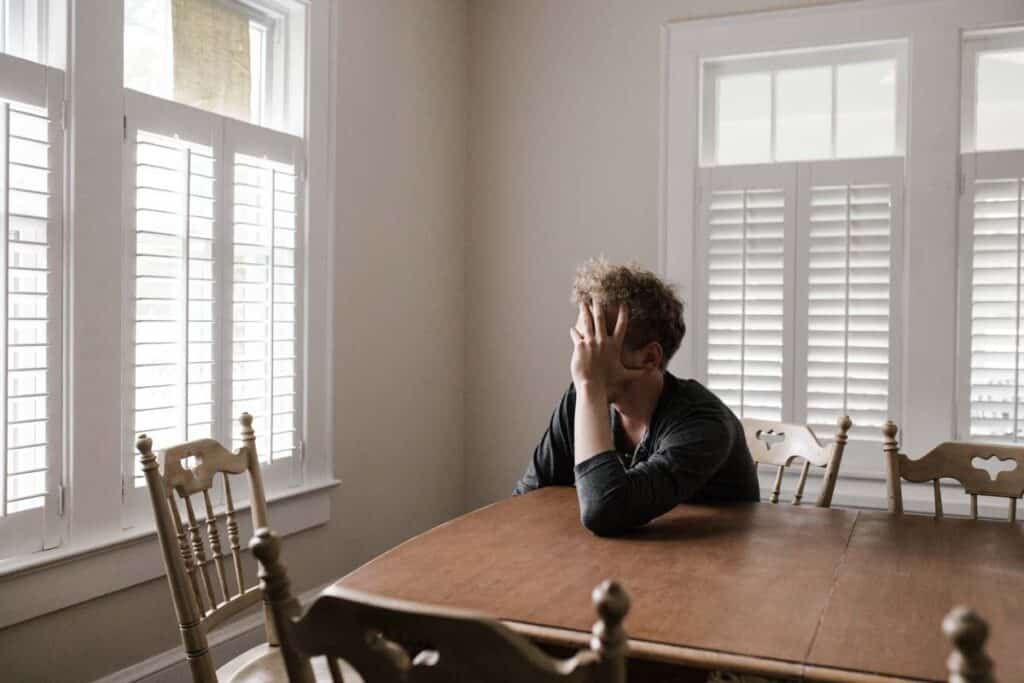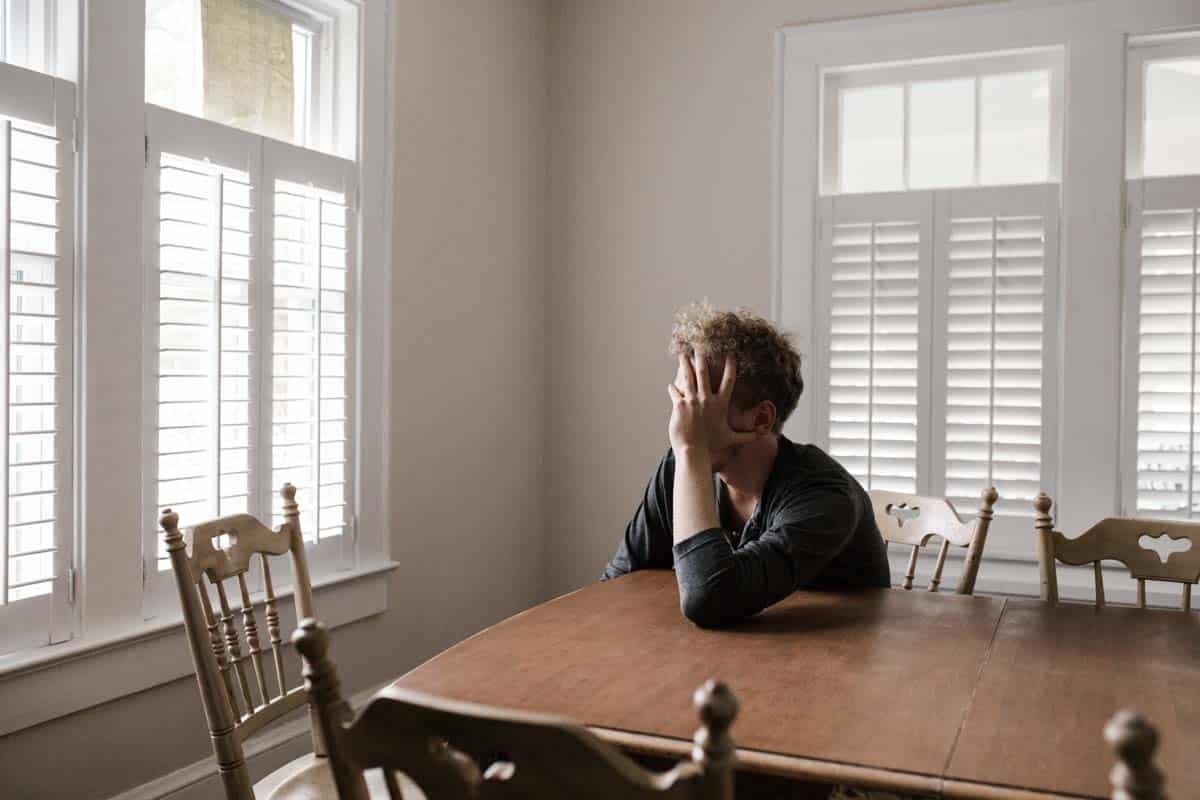If you’re reading this, there’s a good chance that you, or someone you know, are struggling with addiction. If outpatient rehab doesn’t work for you, you may feel hopeless and discouraged. But, don’t worry, help is available! Louisville Addiction Treatment Center offers multiple pathways to treatment, including telemedicine and intensive outpatient programs.
We understand that every person is different, and we will work with you to find the treatment plan that best suits your needs. So don’t give up on yourself – get in touch with us today and let us help you get started on the road to recovery!
Drug Addiction: What If Outpatient Rehab Doesn’t Work?
Drug addiction is a severe problem that affects millions of people in the United States. According to the National Institute on Drug Abuse, about 20 million people in the US suffer from drug addiction. Drug addiction is a chronic, relapsing disease characterized by compulsive drug seeking and use despite harmful consequences. Drug addiction can cause severe problems in a person’s life, including job loss, financial issues, and relationship problems. If you or someone you know is struggling with drug addiction, it is essential to seek help as soon as possible.

What Types Of Addictions Are There?
Drug addiction is a severe problem that can lead to many different addictions. The most common type of drug addiction is alcohol addiction, but there are also other types of drug addictions, such as:
-Cocaine Addiction
-Methamphetamine Addiction
-Heroin Addiction
-Ecstasy Addiction
-Prescription Drug Addiction
What Are The Warning Signs Of Drug Addiction?
The warning signs of drug addiction can vary depending on the person and the type of drug they are addicted to. However, some general warning signs may indicate someone is struggling with drug addiction, such as:
– changes in appearance or hygiene
– secretive or suspicious behavior
– withdrawing from friends or activities
– mood swings or changes in personality
– problems at work or school
– declining physical health
If you are worried that someone you know may be struggling with drug addiction, it is essential to talk to them about your concerns and offer your support. You can also reach out to a professional for help. Drug addiction is a treatable condition, but it is vital to seek treatment early before the addiction becomes too severe.
There are many different types of treatment available for drug addiction, but not all treatment programs are suitable for everyone. Outpatient Drug Rehab is one type of treatment that may be an option for some people struggling with drug addiction. Outpatient Drug Rehab provides therapy and counseling on an outpatient basis, which means that people can continue to live at home while receiving treatment.
Outpatient Drug Rehab is not for everyone, and it may not be the best option for people with a severe addiction or who have struggled with drug abuse in the past. However, outpatient Drug Rehab can be an effective treatment for people who have a mild to moderate addiction and are motivated to get sober.

If you are considering outpatient drug rehab, there are some things you should know:
– Outpatient Drug Rehab may not be as intensive as other types of treatment, so it may not be suitable for people with a severe addiction.
– Outpatient Drug Rehab usually includes therapy and counseling sessions, as well as support groups.
– People in outpatient drug rehab usually continue to live at home, but they may have to attend meetings or therapy sessions several times a week.
– Outpatient Drug Rehab can be an effective way to get sober, but it is essential, to be honest with your therapist and set realistic goals.
What Are the Benefits Of Outpatient Rehab?
Outpatient rehab has many benefits over inpatient rehab. Outpatient rehab allows people to continue working and taking care of their families while receiving treatment for their addiction. Outpatient rehab is also more affordable than inpatient rehab.
Patients typically attend group therapy sessions and individual counseling sessions three times a week in outpatient rehab. Patients may also be required to take drug tests and regularly meet with a case manager.
If you or someone you know is struggling with addiction, seeking help from an addiction specialist is crucial. Drug addiction can be deadly, but it can be treated successfully if the proper treatment is chosen. If outpatient rehab doesn’t work for you or someone you know, other options are available, such as inpatient rehab or telemedicine rehab.
Drug addiction can be deadly, but it can be treated successfully if the proper treatment is chosen. Don’t let habits keep you from living a happy and healthy life. Instead, seek help today and start on the road to recovery.
Please call our admissions team at Louisville Addiction Treatment Center for more information if you are considering outpatient drug rehab. We can help you decide if this type of treatment is right for you.

Telemed
One alternative to outpatient rehab is telemedicine. Telemedicine is a type of distance learning that allows patients to receive treatment from not physically present providers. This type of care has many advantages, including access to care and flexibility in scheduling.
Telemedicine can be an effective treatment for drug addiction, but it is not a cure-all. One of the biggest challenges with telemedicine is that it requires high motivation and engagement from patients. As a result, drug addicts who are not ready to change their behavior may find telemedicine ineffective.
Multiple Pathways Treatment
When it comes to drug addiction, there is no one-size-fits-all solution. That’s why Louisville Addiction Treatment Center offers multiple pathways for treatment so that we can find the best option for each individual. So if outpatient rehab doesn’t work for you, don’t worry – there are plenty of other options available.
At Louisville Addiction Treatment Center, we use a combination of telemedicine and intensive outpatient services to help our patients recover from addiction. Telemedicine allows us to provide care from anywhere globally, while our intensive outpatient program offers more structure and supervision than traditional outpatient care.
Trusted Methods That Work
When outpatient rehab doesn’t work, it’s essential to consider all your options. If you or a loved one is struggling with addiction, know that other treatment methods are available. Here at Louisville Addiction Treatment Center, we offer several programs to help you on your road to recovery.
One program we offer is our telemedicine program. This allows you to receive care from the comfort of your own home. You’ll be able to meet with your therapist virtually and get the help you need without having to leave home.
We also offer an intensive outpatient program. This program is designed for those who need more structure and support than traditional outpatient care. You’ll attend group therapy and individual counseling sessions three times a week. This program is perfect for those who want to continue living at home or working during treatment.
Therapy Session Options
Outpatient therapy sessions are available in various formats, allowing patients to choose what works best for them: cognitive behavioral therapy (CBT), dialectical behavior therapy (DBT), and 12-step meetings. Patients can also receive individualized care through family or couples therapy.
Individual Session: This is a one-on-one session with a therapist. The therapist will help the patient identify and understand their addiction triggers, develop coping mechanisms, and create a relapse prevention plan.
CBT: CBT helps patients change how they think about themselves and their addiction. It teaches them how to deal with difficult emotions healthily.
DBT: This type of therapy helps patients learn to manage their emotions effectively. It also focuses on improving relationships.
12-Step Meetings: These meetings are based on the 12 steps of Alcoholics Anonymous (AA). They provide support and guidance for those recovering from addiction.
Family/Couples Session: In family or couples sessions, therapists help loved ones to understand addiction and how to support the patient during treatment. They also help to repair relationships that have been damaged by addiction.
Telemedicine: Telemedicine is a form of therapy that uses technology to connect patients with therapists. Patients can participate in sessions from the comfort of their own home.
Intensive Outpatient Treatment: Intensive outpatient treatment (IOT) is a more intensive level of outpatient care than regular therapy sessions. IOT provides structure, accountability, and support for those who need it. In addition, it allows patients to continue living at home while receiving treatment.
Outpatient rehab may not be the best option for everyone struggling with drug addiction. If you have tried outpatient rehab and it has not worked for you, other treatment options are available. Louisville Addiction Treatment Center offers telemedicine and intensive outpatient services that may better fit you. Our experienced staff will work with you to find the best treatment option for your needs. Contact us today to learn more about our programs!

